- Home
- Jean Stone
Three Times a Charm Page 10
Three Times a Charm Read online
Page 10
“Andrew is going to New York after the party,” Lily was saying while Sarah perused the food table, rearranging the peach and tan and turquoise napkins that featured motifs of the southwest. “John Benson has taken off. Left Irene. Andrew and Cassie are going to visit her. God knows when he’ll be back.”
Sarah shook her head and began straightening the plates. “How awful,” she said, “about John and Irene. But I’m sure Andrew will be back as soon as possible.”
Lily dropped onto a bench and began wiping sawdust off her Donald Pliner red suede boots. “That’s all you can say? ‘How awful’? If it weren’t for the Bensons we never would have had our success.” Success, of course, to Lily meant the media exposure caused by the Benson wedding, meant the long list of as-yet-unanswered phone calls from hopeful brides-to-be, meant the enormous checks that would be made out to Second Chances.
To a Cherokee, success meant satisfaction of a spiritual kind. She thought of Sutter Jones, made a mental note to ask about his fancy clothes—if they ever spoke again.
She looked at Lily, who awaited a comment. “We hardly know the Bensons, Lily. Breakups are hard, but most people survive.” She did not want Lily to know that she had more important things on her mind right now, that while Andrew and Cassie would be en route to New York, Sarah would be traveling too, on a plane to San Francisco.
Sometime between falling asleep and finally waking up, somewhere in that dreamlike, blissful state that crept in after dawn and seemed so important and so very real, Sarah had decided to go see her aunt Mae. She was going to learn everything her aunt had known, once and for all, about the woman who claimed to be her mother.
Sarah was going to do those things, but she was not going to tell Lily. She wasn’t ready for her friends’ opinions, well-meaning or not.
“It won’t hurt,” Lily continued, “for all of us to be just a tad supportive. I was thinking about granting an interview to a few of the media. Let them know what a wonderful person Irene Benson is.”
Sarah moved toward the makeshift kitchen to check up on Elaine. “What? And be the one to tell the press what John’s done to Irene? Surely you know that kind of gossip—coming from us—would kill Second Chances.”
Lily scurried along behind her. “Well, of course, I’m not stupid. But if they find out first…”
“No, Lily,” Sarah said. “It could be suicide. You might think Irene would appreciate it, but you never know. Besides, don’t they still owe us money?”
“Yes,” Lily whined, “almost eighty thousand.”
“Then I rest my case.”
Sarah walked over to where Elaine was busy placing pepperoni on top of the pizza, shaping the thin meat slices into a giant ten-gallon hat. She and Lily both stopped and stared at the concoction. Neither of them spoke.
“It’s a cowboy hat!” Elaine said proudly. “Or a cowgirl hat! The kids will love it, don’t you think?”
Sarah nodded and asked when they’d be back from the trail ride, and Elaine said in fifteen or twenty minutes. Sarah asked what she could do to help. Elaine suggested she fill the dishes shaped like Texas (she’d picked them up in Springfield) with nachos and her homemade salsa.
Without another word to Lily, Sarah did as she was told.
Lily moved to her elbow. “Well, I think the whole thing is awful. Irene’s not the only one hurting. Andrew is too. John Benson is like a father to him. If it were my father or Jo’s father or Elaine’s father or your father, we wouldn’t pretend nothing happened.”
Sarah wished Lily hadn’t said the words your father. Her father, who’d spent long days beneath the earth, then found eternal darkness there. “No, ma’am,” he’d said. She swallowed back a mother lode of tears, opened another bag, dumped more nachos in another bowl. “Lily,” she said, “stop it.”
Lily made a small guffaw. “Well, it doesn’t seem fair that John Benson can get away with this. Pardon me for thinking we should be there for Irene. And for Andrew.”
“Before we can be there for anyone, she needs to pay off her bill.”
“She’ll pay the bill, Sarah. She is Irene Benson. She’d never risk that kind of indignity. Besides, she knows Andrew is like family to us too.”
Lily, no doubt, had a skewed image of families, not having one herself. She mistakenly thought they were loving and kind and always there for one another.
Sarah carried the bowls of chips and salsa into the mess hall. Lily stuck behind her like salt on a Dorito.
“Is Lily trying to convince you to ‘help out’ Irene?” Elaine asked as she walked toward the table, carrying a large tray of cheese chunks shaped like horseshoes and pickles reconfigured to look like saguaro cacti.
“All of you!” Lily countered with quick, angry eyes. “All of you are insensitive bores.” With that she spun on her Donald Pliner heels and flitted from the hall, sawdust leaving little puffs of anger in her wake.
“Are we insensitive?” Sarah asked Jo after the trail riders had returned and the kids were eating pizza and Andrew seemed preoccupied looking at his watch. She already knew they were “bores”; Lily had used the word often enough.
“Sure,” Jo said.
Sarah sat beside her on a rough-hewn bench. “Lily is angry because we won’t dance on the grave of John Benson’s disappearance.”
Jo shrugged. “Lily overreacts.”
She thought about the movies still spread across her living-room floor and wondered how Lily would overreact if she knew the identity of Sarah’s long-lost mother. She would no doubt romanticize the relationship between Laura and Sarah’s father, spin a web of noble tragedy around the reality that the beautiful starlet had relinquished her first—and apparently only—born.
Yes, Lily would overreact. The term drama queen, after all, had been coined with her in mind.
“The truth is,” Sarah admitted, “I have other things going on in my life to worry about rather than the demise of a relationship between two people I hardly know.”
Jo looked at her quizzically but didn’t pry. She was not like Lily, after all, not one to think that other people’s business was also hers.
Sarah sighed. She picked off a piece of pepperoni that was on the corner of her pizza slice. It must have been part of the wide brim of the hat. “I need to go to San Francisco, Jo. Something’s come up.”
“Because of Sutter Jones?”
Sarah wasn’t surprised at Jo’s quick-thinking question. She nodded. “I have to straighten out some paperwork. Something to do with my mother.”
“Your mother?”
“I mean my grandmother. Oh,” she said, dropping the pepperoni on the side of her desert-colored plate. “I’m not sure what I mean about most things these days.” She stared around the hall, looking at the kids, who were laughing and singing and making faces at one another, doing the kinds of things that kids did when they lived in a real town, not a city like New York, not the kind of place Glisi had called the big, bad world. Perhaps Glisi had tried to shield Sarah from the world for other reasons. Maybe she had died when Sarah went to college because she was so afraid Sarah would not come back to California, would not come back to being one of them, would learn that she was not.
If that had been Glisi’s fear, she was right, for Sarah had quickly learned that the big, bad world was everywhere.
She closed her eyes now. “I’m leaving right after Cassie opens her gifts. I don’t know when I’m coming back.” Maybe by then she’d be able to tell Jo what had happened. Or maybe she’d tell Jason. Maybe by then she’d be able to finally solve the puzzle of her life.
19
She’d been lucky to get on a flight out of Albany that had only one change in Philadelphia. But an hour and fifty minutes between planes in Philly left her too much time wondering what she was doing.
Maneuvering through the jumble of people who had one hand attached to rolling luggage, the other to a cell phone, Sarah sorted through her options. She didn’t owe Laura Carrington anything. She could demand
a DNA test before this went any further, before she returned to the reservation, before she faced Aunt Mae, cousin Douglas, any of them.
She located Concourse B, Gate 17. She wished she’d called Jason before she left. What if the plane crashed? Burch would have no idea that his mother was on it. She’d only told Jo she was going to San Francisco. Would they figure out the rest?
Eagles have wings for a reason, Glisi had often said. Man does not because God does not want him to fly.
With a small smile, Sarah sat down. She looked at the monitor: The flight to San Francisco was on time. She closed her eyes and listened to the white noise of the airport: the beep-beep of the transport, a small child fussing, the hurried footfalls that would be repeated by thousands of feet today, tomorrow, the next day.
She wondered how many of the passersby were familiar with the name Laura Carrington and if any of them cared that her supposed daughter was right there among them.
“Is this seat taken?”
Sarah blinked, then looked up. It was Sutter Jones.
“It’s you,” she said.
“Rest assured, I’m not following you. I’ve been here on business. Now I’m headed west.”
“San Francisco?”
He shook his head. “L.A. The trip I canceled the other day.”
Right, she thought. His “business” for Laura Carrington.
“My gate’s across the way,” he said. “I saw you sitting here and—”
“—and you decided you hadn’t bothered me enough.” She sounded flip, she knew. Flip, tired, irritable.
“Sarah…” he said, sitting down next to her. “Are you going to the coast to find out more about your mother?”
She supposed she could say she was going to visit an old friend from college, but he’d already met the sum of her old college friends in West Hope, and he probably knew that. She looked down at her boarding pass, wishing the plane would get here, wishing she could leave.
“Sarah,” he said again, “I want to help. What can I do to make this easier for you?”
She sensed the softness of his cashmere next to the roughness of her wool. She sensed the high gloss of his shoes, his teeth, his fingernails, next to her plain, unpolished self. She thought about Jason, about how much money meant to him, about how he’d been so willing to leave Sarah not only for his dream to play wonderful music but also to strike it magically rich. Her eyes moved toward the gate, then to the window. “How much is she paying you?” she asked. “How much is Laura paying you to get me to meet her?”
He laughed, which was not what Sarah expected. “Not that it matters, but I handle her business deals. I’m doing this as a favor. Let’s just say I owe her.”
A small flare of anger ignited in her heart; she cast a sharp look in his direction. “Since when does an Indian allow himself to be indebted to anyone? Are you that Americanized? Look at your expensive clothes. I’ll bet you make a lot of money. Are you sure you’re not white?” There it was, the real reason that his presence bothered her. He had left the reservation and found wealth. He betrayed the earth, the wind, the stars. In Sarah’s eyes he was no longer Cherokee at all. He might as well have been Jason camouflaged by a suit.
His black eyes narrowed, his forehead scrunched. “I have nice clothes because I like them. I earn a good salary because I enjoy working hard. But one thing is true, Sarah: If it weren’t for Laura Carrington, God knows where I’d be. God knows where any of us would be. She didn’t want me to tell you, but under the circumstances you leave me little choice. Since you were born—since she turned you over to your father and your grandmother—Laura Carrington has been paying for the education of the children on the reservation. She felt that only through education would we be free from the limitations of our past. She felt that education was the key to the future for us all.” He stood up then, picked up his briefcase. “For what it’s worth, Laura Carrington set up a fund that I manage for her today, at no charge, I might add. The money in that fund is what sent me to college and sent me to law school. It enables all the children of our tribe to get higher education. For your information, it sent you to college too. Because your mother wanted you—and all our children—to have every possible chance for a good, meaningful life.”
Just then a voice over the speaker announced United flight 2215 to Los Angeles was boarding at Gate 16.
“I should be back in my New York office by the end of next week,” he said with one more expectant look. Then he turned and crossed the concourse, leaving her feeling foolish, feeling numb.
20
The penthouse had two floors now.
Andrew had grown up in the unit across the hall, when both apartments had only one floor, which had been plenty big enough, with a living room, dining room, kitchen, study, and three bedrooms and three baths. In the early nineties, when the stock market took a tumble and most New Yorkers whispered the word recession as if it were a secret, John and Irene cashed in on their downstairs neighbors’ misfortune and scooped up their equally sprawling apartment for half what it was worth. Within six months Irene had transformed it into guest quarters and a small theater and had renovated the upstairs master bedroom into a full-blown suite, featuring an ostentatious bathroom that once had been a bedroom.
The Bensons, of course, by that time could have afforded any number of the gargantuan residences that came onto the market, but Irene maintained that in New York location was everything, and they loved where they were situated, right on Park Avenue, so easy to get from there to anywhere, with a view of the East River that most of their friends envied.
The top floor of the Benson place was where the elevator brought you (after you’d been cleared by Jensen), depositing you at the front door that opened into the foyer. “It’s called a gallery today,” Irene had once corrected Andrew. He supposed that was society’s way of designating a special place for whatever artist one was patron-ing that month or year. Irene most lately favored someone from Santiago named Pietro, whose cubist creations were too orange for Andrew’s taste.
Sunday morning Andrew sat in John’s study (to the left of the gallery), trying to decide if he should be angry at John or at Irene, who had left a message on Friday night before he and Cassie got there—while he was speeding down the parkway to rescue Irene from…well, he wasn’t sure from what, listening to three hours of Cassie loading thank-yous on Andrew (well, that part wasn’t so bad) because he’d let her have the party and he’d given her her own private cell phone as a birthday gift. He’d also endured the three hours of noticing from the corner of his eye that his daughter kept touching the small pink and silver teardrop earrings that Eddie what’s-his-name had given her wrapped up in a bow.
When they’d arrived at the penthouse, Elsa, the cook and housekeeper, announced to Andrew and Cassie that Irene wouldn’t arrive until Sunday after all, that she’d decided to stop in Dallas.
No excuse. No explanation. Just Irene being Irene, always the one in charge.
So they’d settled into the guest suite for the night. The next day was Saturday, so they went to the museum and to the zoo, even though it was cold. Then they plundered John’s videos and watched a bunch of movies and ate too much popcorn and stayed up too late.
And now it was Sunday. Cassie had gone to the market with Elsa, leaving Andrew to wait for Irene, if she ever decided to show the hell up. If she didn’t come soon, they were leaving. Forget staying a week—he decided they would leave by dark, whether or not Irene arrived. He had a life—Cassie had a life—in West Hope, and Irene was obviously strong enough to survive without them.
He thought those things while sitting in a deep leather chair, aimlessly thumbing through an annual report of one of John’s biggest ventures: a consortium of radio and TV stations known as the Benson Group. John had once wanted Andrew to join him as a partner; he’d said he looked upon Andrew as a son, the child he and Irene never had. Irene had laughed and told him to speak for himself, that she wasn’t nearly old enough to have a so
n Andrew’s age.
A partnership, a business deal, might have worked if John hadn’t left Irene that one time, when Andrew was in his last year of prep school and Irene was lonely and Andrew was…well, there. There, and seventeen, and probably seeking a mother figure because his mother was always so busy as a physician or she was away. Or, more likely, just because he was so totally nuts over the first woman who had unveiled her breasts to him.
It had happened quite by accident.
Or had it?
Andrew had gone home on spring break. He’d gone across the hall from his parents’ apartment and learned that John had moved out.
“A model from California,” Irene had explained. “With a fake tan and no tits and too many teeth.” It hadn’t helped that the girl was only twenty.
The next day Irene made good on a promise John had offered, to line up a summer job for Andrew at NBC. After his interview, he went to thank her.
One of them (later he could never be sure which one it was) made the first move, touched the first touch, encouraged the first sweet, gentle kiss.
Irene’s chiffon had slid from her shoulders.
She unzipped his jeans.
And he spent the rest of his vacation having sex.
He’d gone back to school no longer a virgin, but by the time the school year was over, John had moved back into the penthouse, the model apparently gone.
Andrew and Irene spoke about it only once, when Irene let him know she had not told John. It was best that way, she said. It was best for all of them.
Now, like then, and like the twenty-five-plus years in between, Irene was definitely the one in charge.
Andrew tossed down the annual report. He knew he didn’t really have a right to be angry with her for stopping in Dallas, when he’d enabled her controlling behavior all this time by feeling so damn guilty about what they did way back when.

 A Vineyard Morning
A Vineyard Morning A Vineyard Summer
A Vineyard Summer A Vineyard Crossing
A Vineyard Crossing A Vineyard Christmas
A Vineyard Christmas Beach Roses
Beach Roses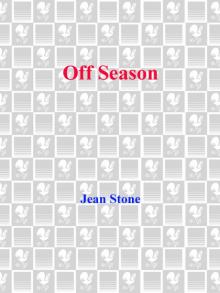 Off Season
Off Season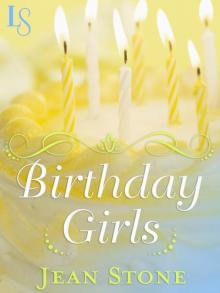 Birthday Girls
Birthday Girls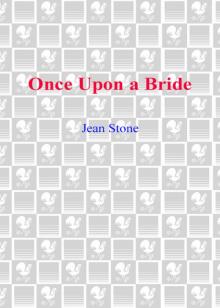 Once Upon a Bride
Once Upon a Bride Places by the Sea
Places by the Sea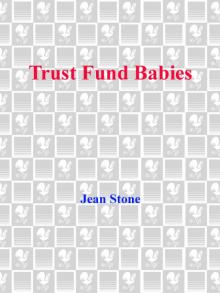 Trust Fund Babies
Trust Fund Babies The Summer House
The Summer House Tides of the Heart
Tides of the Heart Sins of Innocence
Sins of Innocence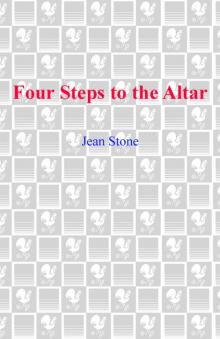 Four Steps to the Altar
Four Steps to the Altar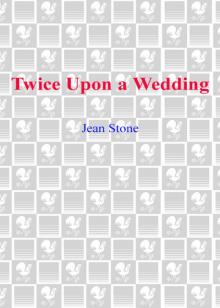 Twice Upon a Wedding
Twice Upon a Wedding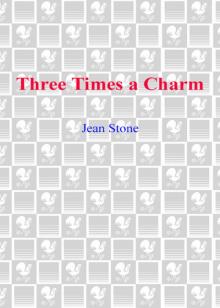 Three Times a Charm
Three Times a Charm